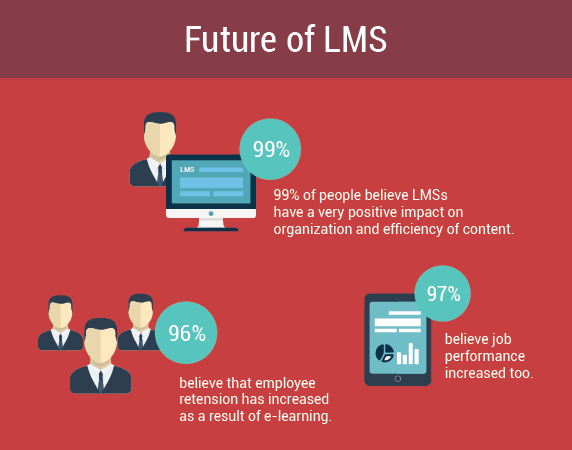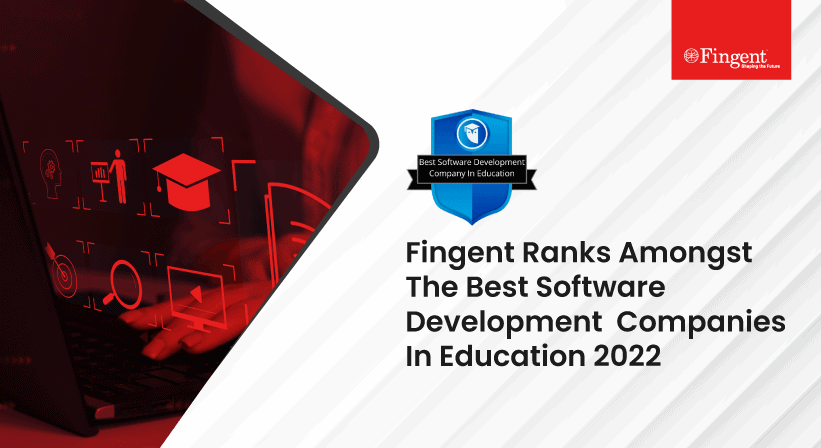Key Trends in Learning Management Systems for 2016
Learning Management Systems (LMS) have been in use in the education industry for quite some time now. They basically make use of software to administer, track and monitor the functioning of e-learning courses. Schools, colleges, and universities have been using LMSs to provide online courses that compliment traditional on-campus courses. These days LMS software is also used by Corporate Talent and Development (T&D) departments, to provide online training to employees and to automate record-keeping. According to findings by E Learning Industry, the LMS industry is expected to be worth over $7 billion by 2018.
Over the past few years, the use of LMSs among various industries have increased and for the same reason they have undergone their share of evolutions and changes as well. As is the case with any kind of technology, old systems can no longer serve the purpose of educational organizations today and hence, they have to evolve.

Learning Management Systems are not simple pieces of software anymore. Software analysts have done considerable research about the evolving LMS industry and have identified several trends. Let’s take a look at some of the major trends in the industry this year;
- Open Software-as-a-Service (SaaS) Solutions – Cloud-based SaaS solutions have always allowed LMSs to be easily set up and used, thanks to their established standards and ease of access. But even such service delivery models have drawbacks. They may allow for easy access and setting up but they allow for only very minimal customization. Open source platforms, on the other hand, may offer customization capabilities but they may incur expenses for frequent administration and downtime. A delivery model that utilizes the best of both worlds is one that is Open Saas, with substantially reduced setup costs and customization as well. This year we will likely see the rise of Open SaaS solutions that can bring down the overall costs of ownership and also provide service delivery to fit the unique needs of different businesses.
- Gamification – Gamification, that is, the use of gaming elements and mechanics beyond the traditional gaming experience and integrating it with learning and education systems, is something that has proven to increase retention and learning speed among students. For the same reason, as a general trend in the education industry, we’ll be seeing an increase in this technique. In LMS, we are likely to see the increased integration of gamification with it and furthermore, improvements in the interface and portal design as well. By increasing engagement through gamification, LMSs seek to allow both students and employees approach their learning from a strategic point of view, with time management skills and a point or reward-based incentive systems. It provides a lot more than entertainment, and aims to increase the overall learning potential through incentivized processes and behaviors.
- Socializing – We are all familiar with the effect that social networks have on our people. I mean, they have been nothing short of successful in luring an entire generation into the habit of sharing information and scheduling stuff through the internet. Every single day, people get into their own social circles online and see what their counterparts are up to, share their own little world with them and literally keep themselves updated on the happenings of each passing day. Such being their effect, on the mere matters of everyday life, why not leverage them for learning and training or education purposes as well?
Indeed. They are made use of by LMSs in getting across learning material to users and allowing them to share knowledge within their own social circles. LMSs seek to utilize the comfort and familiarity that users experience through the social media channels, and encourage them to share and learn in a comprehensive way. With the increasing popularity of this trend, it would only be a matter of time before LMSs start delivering personalized and adaptive training and talent management services to users through these social networking portals. - Blended learning – Again, a general trend that we will continue to see trending in the education industry this year. Blended learning also helps businesses in training and improving the skills of their employees as well. By integrating the digital and practical learning experiences, it augments classroom learning, with supplementary learning materials, advanced scheduling capabilities and the like, and provides the users with much needed hands-on experience. LMSs facilitate these practices and make way for more effective learning sessions, be it for students or employees of an organization. It also makes scheduling tests and exams much easier, as all of this can be organized and monitored through a single portal. What’s more, it keeps the overall costs of training and development well within the budget. With many such benefits, this method has already proven to be successful, which is why we’ll be seeing more of this in the coming years.
- Increased business utility – The use of LMSs in business organizations had been on for some time now, although it hadn’t quite gained momentum. This year, it is definitely going to increase, as businesses have realized that investing in education and personal development of their employees, benefits not just the employees alone, but almost all areas of their business. From customer engagement to management, LMSs can help in managing all important aspects. Training the employees, can reduce employee turnover and improve morale. Customers and business partners can also benefit from LMSs by making use of the tracking and information dissemination capabilities. They can even help you devise your own e-commerce strategy or customer service portal.
Learning Management Systems have come a long way from the time they were introduced into the industrial landscape. They have become more than just complimentary educational programs. This year definitely looks like a revolutionary one for LMSs, as it is likely to take over the business field as well. There can be many more trends in the LMS industry this year. What do you think we can add on to this list? Let us know in the comments below.
Source: Software Advice
Stay up to date on what's new

Recommended Posts

16 Nov 2022 Education
Fingent Ranked as a Top Software Development Company in Education for 2022 by Online Degree!
Here’s another feather on our hat! Fingent ranks amongst the “The Best Software Development Companies In Education - 2022” listed by the leading consumer education website, Online Degree! This year’s……

03 Mar 2022 Education
The Rapidly Evolving College Admission and Learning Experiences!
Educational institutions were among the most impacted aspects of society when the coronavirus unleashed its hold on the world. Over the course of 18 months schools, colleges, and universities all……

08 Dec 2021 Education
What Is the Future of Augmented Reality in EdTech?
In simple terms, EdTech is the practice of leveraging IT tools and technology into the classroom to create an inclusive, more engaging, and personalized learning experience. As per industry research,……

12 Nov 2020 Education
9 Innovative Ways to Use Technology in Classrooms
How Technology is Transforming Classroom Learning There’s no denying that technology has completely transformed the way we live and steadily it is becoming more and more predominant in the classroom……
Featured Blogs
Stay up to date on
what's new










